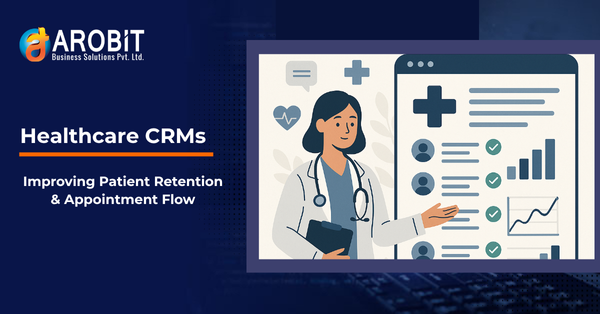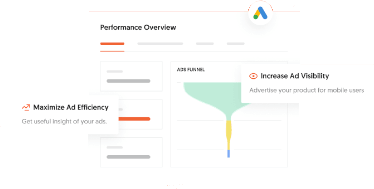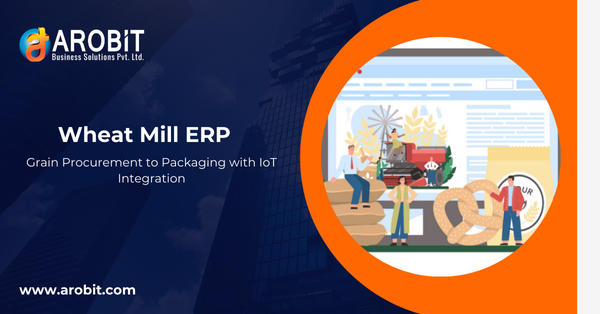As per the recent reports by Statista, 88% of the office-based physicians in the USA work with EHR or Electronic Health record systems.
This is interesting for healthcare because the digital revolution is already starting to happen in the field. A recent poll found that 75% of firms said they would utilize CRM technologies for healthcare services following the pandemic. This also demonstrates how much more work needs to be done to make healthcare patient management systems better.
CRM for healthcare professionals is more than just a way to keep track of interactions with patients. It can also help improve the quality of care and streamline business procedures. This is why we are here to help you understand how CRM software development has changed the healthcare sector and will continue to do so in the time to come.
Healthcare CRM: All You Must Know About
It is designed to centralize patient data, simplify interactions, and automate activities across the patient journey, healthcare CRM software Unlike general CRM systems, healthcare CRM Software is designed to ease the complexity of the operations that includes appointment, scheduling, billing, and marketing as well. This integration helps to optimize internal processes and provide coordinated, patient-centric care.
The advantages of a healthcare CRM when compared to EMR and HIS goes much beyond simple contact management. These tools:
- Reduce administrative load and missed visits by automating appointment scheduling and reminders.
- Consolidate patient data for fast, safe access by authorized personnel.
- Allow focused patient involvement initiatives for preventative care, follow-ups, and satisfaction surveys.
- Offer reports and practical analysis to raise quality of care and operational efficiency.
So, businesses can create closer ties, increase health outcomes, and strengthen their brand in a crowded market by using CRM.
Healthcare CRM Tools: Core Features and Capabilities
Modern healthcare CRM tools offer a comprehensive suite of features to support the entire patient lifecycle. We have all of it specified below:
- Centralized patient data management allows providers to access medical histories, treatment plans, lab results, and insurance details from a single dashboard.
- Integration with EHR systems ensures that all information is accurate and up to date, reducing the risk of errors and improving care coordination.
- Appointment scheduling modules in CRM software provide dynamic calendar management, real-time availability, and automated notifications.
- Patients can self-schedule appointments, receive reminders via SMS or email, and complete digital intake forms before their visit. This not only streamlines the check-in process but also enhances the overall patient experience.
- Patient engagement tools within healthcare CRMs enable personalized communication, educational outreach, and satisfaction surveys.
- By segmenting patients based on demographics, conditions, or visit history, providers can deliver targeted messages that foster loyalty and encourage proactive health management.
How Healthcare CRMs Drive Patient Retention?
Successful healthcare companies depend on CRM software to enhance their patient retention numbers. In fact, it has made it easier to keep up with the current patients than getting new ones. Take a look how Healthcare CRM can benefit significantly in terms of boosting retention:
- Automated follow-up reminders for chronic illness management, screenings, or annual check-ups.
- Personalized communication that helps patients feel appreciated and understood.
- Patient portals provide simple access to care instructions, test findings, and appointment history.
- Proactive outreach for wellness initiatives and preventive care.
Using these attributes, clinicians can enhance health outcomes for their patients, raise lifetime value, and lower patient churn.
How Healthcare CRM Impacts the Overall Process?
Below we are going to highlight how Healthcare CRM can have a major impact on the overall patient care services:
Appointment Management in Healthcare
Efficient appointment management in healthcare is critical for both patient satisfaction and operational success. Manual scheduling methods are prone to errors, double-bookings, and inefficiencies that frustrate patients and staff alike. Healthcare CRM software automates these processes, allowing patients to book, reschedule, or cancel appointments online at their convenience. Automated reminders and confirmations reduce no-shows by up to 90%, ensuring that providers’ schedules are optimized and resources are fully utilized.
A robust CRM system also supports waitlist management, skill-based routing, and real-time calendar updates, enabling practices to fill last-minute cancellations and allocate staff effectively. These features are essential for clinics, hospitals, and private practices seeking to scale their operations without sacrificing care quality.
Analytics and Reporting
One of the most powerful aspects of medical CRM tools is their ability to generate actionable insights from vast amounts of patient data. Advanced analytics dashboards track key performance indicators such as appointment volume, no-show rates, patient satisfaction scores, and revenue trends. Predictive analytics can identify patients at risk of disengagement or non-compliance, enabling targeted interventions.
CRM reporting tools also help organizations monitor the effectiveness of engagement campaigns, optimize scheduling strategies, and ensure compliance with regulatory requirements. By making data-driven decisions, healthcare leaders can continuously refine their processes and deliver higher-quality care.
Integration with EHR and Other Systems
Seamless integration with EHR systems is essential for maximizing the value of healthcare CRM software. This connectivity eliminates duplicate data entry, ensures consistency across platforms, and supports real-time updates to patient records. Integration with billing, telehealth, and marketing systems further enhances operational efficiency and enables a holistic view of each patient’s journey.
For organizations with unique workflows or specialized needs, custom CRM development offers the flexibility to build tailored solutions. CRM development services can design and implement integrations that align with specific business objectives, ensuring that the CRM platform evolves with the organization.
Enhancing Operational Efficiency
Healthcare CRMs are instrumental in reducing administrative workload and improving resource allocation. Automated workflows handle routine tasks such as appointment confirmations, follow-up reminders, and patient outreach, freeing staff to focus on direct patient care. Centralized data management reduces errors and streamlines communication between departments.
Efficient appointment management in healthcare also minimizes idle time, reduces scheduling conflicts, and ensures that providers’ time is used effectively. These operational improvements translate into cost savings, higher staff satisfaction, and better patient experiences.
Key Benefits of Healthcare CRM Software: A Comparative Table
Real-World Impact: How Arobit Made A Difference?
Healthcare providers have reported significant improvements in patient retention, appointment flow, and operational efficiency through CRM implementation. For example, clinics using automated reminders and online scheduling have reduced no-shows by nearly 50%. Not only this, it has enhanced patient satisfaction scores due to improved communication and convenience.
We at Arobit helped hospitals with medical CRM tools for targeted outreach and they have seen exquisite improvements in preventive care visits and follow-up compliance, directly impacting health outcomes and revenue.
So, hire CRM development services from Arobit and get the product that meets regulatory requirements and supports long-term growth.
Building Loyalty in Healthcare
Healthcare CRMs build trust and loyalty by means of automated engagement, simplified access to treatment, and tailored experiences. Patients who feel linked to their doctors are more likely to maintain appointments, accept medical advice, and refer the practice to others. Healthcare CRM advantages in patient retention include:
- Regular, proactive contact that keeps patients involved and informed.
- Online scheduling, telehealth, and patient portals provide simple access to care.
- Tailored teaching material and personalized health alerts.
- Surveys of satisfaction and feedback gathering showing dedication to ongoing development.
These strategies not only reduce churn but also enhance the provider’s reputation in the community.
What Lies Ahead in Healthcare CRM?
Greater personalization, artificial intelligence, and mobile access will define future healthcare CRM software. AI-driven medical CRM systems can provide customized health material, improve appointment slots, and forecast patient needs. From any location, mobile-friendly systems let patients control appointments, view records, and interact with physicians.
As companies try to stand out and react to changing patient expectations, custom CRM creation will remain crucial. Designing, implementing, and maintaining these sophisticated solutions will depend on CRM development services as key partners.
Final Takeaway
These aspects show how Healthcare CRM software can certainly make things easy to manage and eventually boost patient retention significantly. It makes it easy to garner appointments through automatic scheduling and boost personalized engagement. So, it is important that you invest in CRM development services that can help you support growth and compliance without compromising on quality of service.
Make sure to connect with the experts at Arobit and get all the assistance you need to deliver exceptional care, building loyal patient communities, and achieving operational excellence.
FAQs
1. How do healthcare CRM benefits impact patient retention?
Among the advantages of healthcare CRM are automated engagement, tailored communication, and simple access to treatment-all of which support patient loyalty and lower turnover.
2. What are the key features of medical CRM tools for appointment management in healthcare?
Key features are online scheduling, automated reminders, waitlist management, real-time calendar updates, and EHR system integration.
3. How does patient retention software differ from traditional marketing tools?
Designed especially for healthcare, patient retention software emphasizes involvement, follow-up, and care coordination rather than broad marketing effort.
4. Why is custom CRM development important for healthcare organizations?
Custom CRM development lets suppliers create solutions fit for their own goals, processes, and compliance criteria, hence guaranteeing optimal value and scalability.
5. What role do CRM development services play in healthcare digital transformation?
CRM development services assist companies put efficient, compliant CRM solutions into practice by providing knowledge in system integration, user experience design, and security.
6. How does appointment management in healthcare improve operational efficiency?
Centralized data, automated scheduling, and reminders cut administrative burden, lower mistakes, and guarantee best use of provider time and resources.
7. Can healthcare CRM software integrate with existing EHR and billing systems?
Modern CRM systems do indeed enable a unified patient experience by means of smooth connection with EHR, billing, and other healthcare systems.








